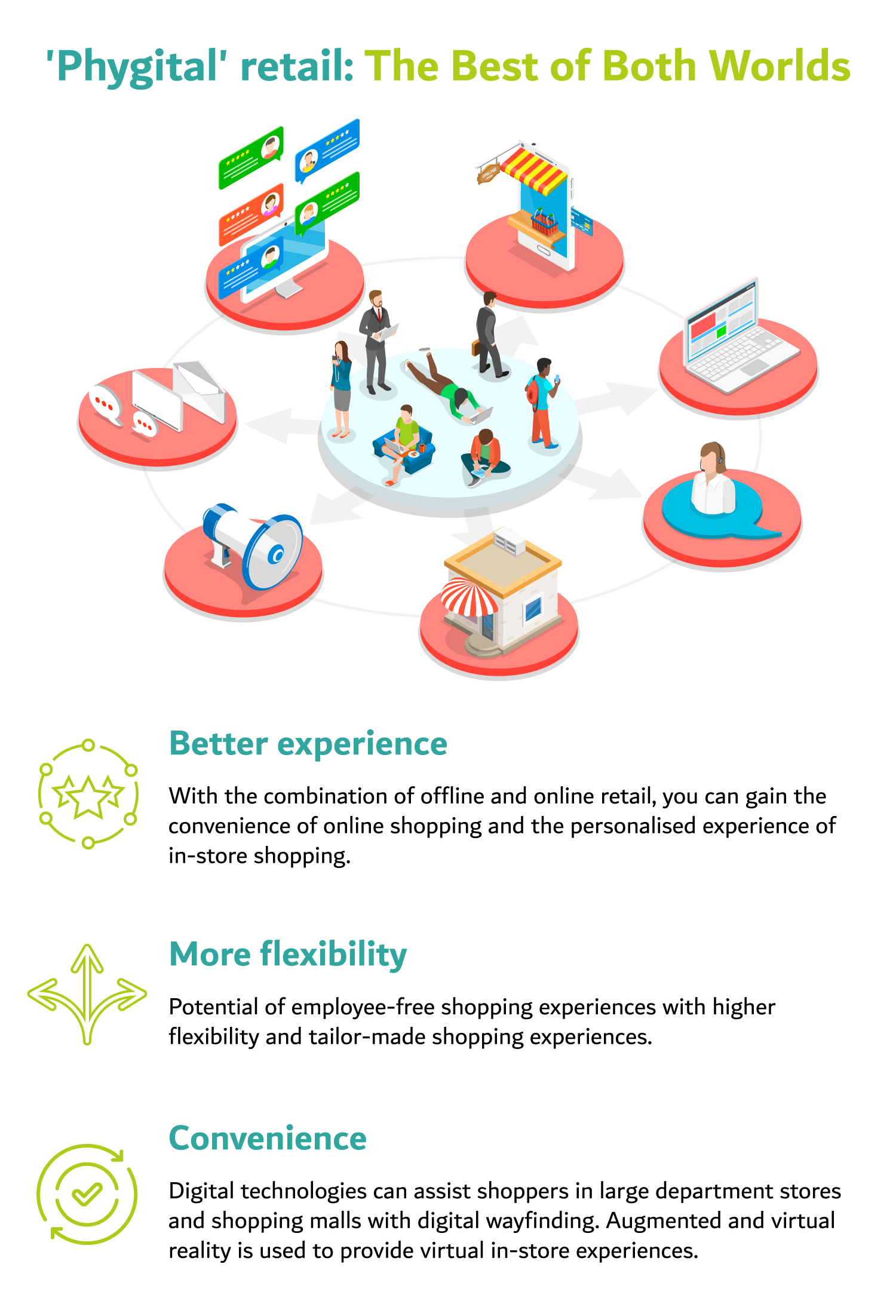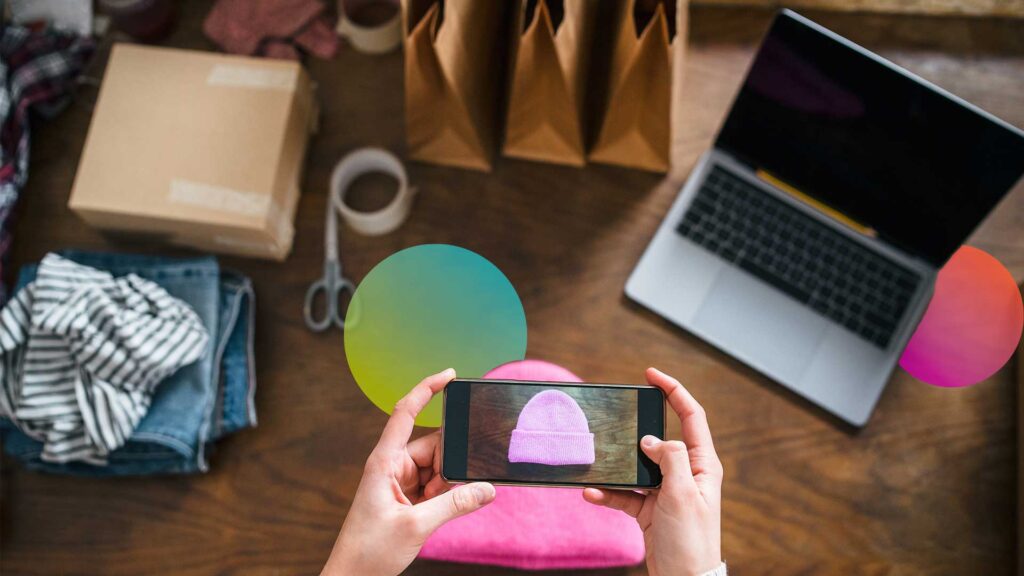For Dubai-based entrepreneurs and startups in the retail sector, it can be a challenge to know where to base your business: physical, digital, or phygital? The reason for this dilemma is that while global adoption of online shopping continues to rise steeply, regional and cultural trends tend to tell a different story.
In actual fact, some digital-first retailers are even taking steps to open physical stores to improve their market penetration in retail strongholds such as Dubai. By the same token, big money acquisitions of regional retailers, such as Amazon’s purchase of Souq in 2017, clearly indicate the global value of the UAE’s flourishing e-commerce ecosystem.
If you’re thinking of catering to the growing demands of the consumer market, continue reading this article to gather a comprehensive understanding
This article covers all you need to know, including;
Global Versus Regional Trends
There is no doubt that over the last decade or so, online retailers have enjoyed a period of sustained growth in the UAE, the wider MENA region, and the rest of the world. With 100% of the UAE population making use of the Internet, and an ever-growing generation of digital natives, the conditions look set for that trend to continue. In fact, between 2018 and 2022, the value of e-commerce sales in the UAE more than doubled, from $12.34 billion to $27.08 billion USD. So where does that leave physical retailers?
Particularly in the UAE, the shopping mall and the experiential retail experience are part of everyday life. Malls are commonly viewed as lifestyle destinations, with shopping just one part of the package alongside things like entertainment and food. Although consumers in the UAE might be developing an online shopping habit, bricks and mortar retailers maintain multi-generational popularity and appeal. Interestingly, despite the shift in consumer habits as a result of the Internet penetration coupled with the global pandemic, e-commerce has less than a 4% penetration rate in MENA.
Does this suggest huge potential for e-commerce growth, regional resistance to online shopping, or is the answer somewhere in between? Let’s take a closer look at the strategic strengths of each type of retail.
What is an Online Store?
An online store is an online marketplace, a webpage on a social media site, or a dedicated e-commerce site where customers can browse and purchase products for home delivery.
Some companies have an online store as part of their wider business model, often alongside physical stores or in addition to their main product or service. Other companies are online-only, but may choose to have some form of presence in physical retail.
And in certain sectors of the retail industry, online shopping is fast becoming the norm. For instance, in Dubai only 7% of residents say they never use grocery delivery apps.
The Advantages of an E-Commerce Store
Deciding to launch an e-commerce business has a number of clear business benefits:
- Barriers to entry
Setting up an online store has a lower barrier to entry because it’s relatively simple to set up, especially when compared with its physical counterpart as it discards the need for physical presence.
- Lower risk
There’s also less risk involved in the early stages because there are fewer overheads. It doesn’t require the premises or employee wages associated with physical stores. Furnishing the office space and buying equipment is not needed with an online website as an alternative. Hence, there’d be lower overhead costs and operational costs in the earlier stages.
- Higher reach
If retail is all about reach, then opting to set up an online store enables your business to serve the entire global community, providing you can ship internationally. Reaching a vast amount of target audiences and customer segments would not be a problem with a strong online presence.
- Easy to start
Depending on your business model, online retail can begin at home if you can handle the packing and shipping. Alternatively, you can use third parties to pack, ship your goods and help with the needful administrative and accounting tasks.
- Flexibility
Occupying a physical space in a mall means adhering to their regulations and opening times with no restrictions that come with physical space. With online retail, you’re open 24/7, with the flexibility to work towards your own schedule.
- Lower costs
With fewer overhead costs, online retailers can raise their profit margins. They can also utilise website data to analyse consumer habits and their marketing efforts.
What is a Physical Store?
A physical store is an independent business or franchise which occupies a physical space in order to display and market its products, from a market stall to a rented retail space in a mall.
Commonly referred to as ‘bricks and mortar’ retailers, these companies employ in-store staff to assist shoppers with their purchases, take payment at the point of sale, update displays, and stock.
Physical stores can be located within other institutions, such as art galleries and museums, sports venues, hotels, and private buildings. Types of physical stores vary greatly. Some rely on catching the attention of passing shoppers with window displays and offers. Others provide niche products, which attract a recurring and specialist audience and therefore require a less prominent location.
When it comes to shopping in the Middle East, there is a clear trend for consumers to visit a physical store where there are personal shopping services, personalised promotions, and exclusive offers. 34% of shoppers in the Middle East choose physical retail because it’s perceived as a fun pastime. They can also test out a product (typically clothing or luxury items) in-store before making a purchase.
The Business Benefits of Bricks and Mortar
For any retailer, it’s important to be where your customers are. And it’s clear that shoppers in the Middle East value physical, experiential retail. For example, Dubai-based eyewear retailer eyewa began life as an online startup before expanding into physical stores. They currently have seven bricks and mortar stores in the UAE.
So what are the business benefits of bricks and mortar?
- Middle Eastern shoppers value the social aspect and more personalised experience of shopping in-store.
- The touch and feel aspect is also important. People like to see certain products in person to check if the quality, size, or fit meets their expectations.
- People forge a deeper, more personal connection with luxury, one-of-a-kind items such as jewellery. Physical retail can offer more exclusive or limited-edition offerings.
- Buying items in-store means there are no shipping costs and returns are much simpler. Customers also avoid the delay associated with returning online purchases.
‘Phygital’ Retail: The Best of Both Worlds
Taking the best of physical and digital retail, ‘phygital’ combines the benefits of online shopping with the social and more personalised experience of shopping in-store.For instance, Dubai launched its first phygital retail store in Dubai Hills where both online and offline shopping preferences are being catered to. The store uses a productivity infused network with in-store warehouse systems to ease the process of fit-ons and choices for customers.
Providing a more immersive brand and shopping experience, tech-savvy retailers are not only merging their online and offline retail, they’re actively using technology to enhance the physical retail space and create a unique and memorable shopping experience for their customers.
A basic example would be the ‘click and collect’ service. Shoppers can browse online, compare prices, read reviews, and refine their search to get the best offers. But they still collect the item in-person from a store. This makes it easy to return, and they still get to see the product before leaving the store.
However, with the right technology in place, the future of phygital retail is set to become much more sophisticated. Automated checkouts are already common in grocery stores, but they could lead to employee-free shopping experiences.
Similar to external geolocation tools like Google Maps, indoor location technology is starting to assist shoppers in large department stores and shopping malls with digital wayfinding. Location-based technology is also making personalised offers a reality, as smartphones pick up push-notifications on entry to a physical store.
Augmented and virtual reality and related technology is also starting to provide virtual experience of products or services in-store – such as virtual changing rooms. Digital signage is enabling retailers to engage shoppers with personal, relevant, and anticipated marketing information in real-time: things like flash sales or recommended related products.
Choosing the right type of retail format comes down to two things: the type of product you’re selling, and where you’re most likely to find your core customers. But rather than competing through a single channel – online or offline – tech-savvy retailers in the UAE are exploring the business benefits of combining the best of digital and physical stores through phygital.


